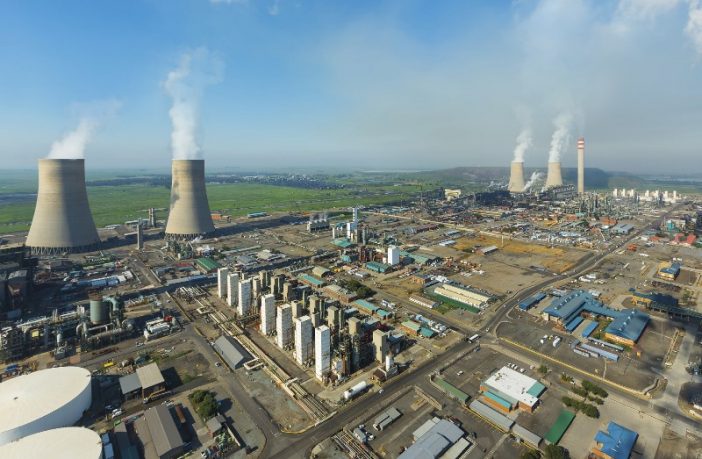Open – Ed: JUST SHARE
- On 12 October, fossil fuel company Sasol, whose operations include Secunda, the world’s biggest single-point source of greenhouse gas (GHG) emissions, refused to table the sixth shareholder-proposed resolution filed with the company in five consecutive years.
It is clear from this history that Sasol’s refusals are not grounded in a consistent application of the law, nor in sound principles of corporate governance. Rather, the company appears to have set out, in every instance, to find reasons to prevent its shareholders from having an opportunity to vote on any resolutions other than those tabled by Sasol itself. This is not only contrary to South African law, but also contrary to the position of hundreds of other listed companies across the globe, including dozens of fossil fuel companies, which every year put shareholder-proposed resolutions on their ballots.
Sasol’s reasons for refusing to table shareholder-proposed resolutions include that:
- The resolution was filed too late (all six resolutions were filed in compliance with the regulated timeframe);
- Shareholders are not entitled to exercise voting rights on matters related to climate change (a reason now contradicted by Sasol’s tabling of its own, non-binding advisory resolution which asks shareholders to endorse its “climate change ambition, strategy and actions”);
- The matters addressed in the resolutions have “already been addressed” in Sasol’s disclosures, rendering the resolutions unnecessary (a conclusion which Sasol reaches unilaterally, preventing its shareholders from giving their own view on whether these matters have been adequately addressed);
- The co-filing shareholders seek to “micro-manage the company” (a baseless argument, particularly when the resolutions in question simply require better disclosure, and/or are filed as non-binding, advisory votes); and
- Sasol’s “existing commitments and approach are well known to, or easy to ascertain by, the proposers of these resolutions, as [it has]consistently availed [itself]for engagements with [proposers]” (the resolution specifically requested disclosure on Paris-aligned strategies and targets, which were not known to anyone outside Sasol at the time).
Related news: SASOL ups its 2030 carbon emmissions reduction target by 30%
The South African Companies Act, 2008, provides, in section 65(3), that any two shareholders of a company may propose a resolution “concerning any matter in respect of which they are each entitled to exercise voting rights”. The JSE Listings Requirements provide that ordinary resolutions are “subject to a minimum notice period of 15 business days” prior to the date of the company’s AGM.
A legal opinion by advocates Tembeka Ngcukaitobi SC and Chris McConnachie concluded, inter alia, that:
- The Companies Act, in section 7, specifies that the Act must be interpreted in a manner that promotes compliance with the Bill of Rights in the Constitution, and in accordance with a number of other purposes of the Act, including encouraging transparency and high standards of corporate governance;
- Climate change is a serious human rights issue, which poses particularly severe risks to South Africa’s ability to develop in a sustainable and inclusive manner;
- The aims of promoting transparency, sound corporate governance, and balancing the rights of shareholders and directors, would all be best promoted by allowing shareholders to call for further information, particularly on climate change and environmental, social, and governance (ESG) issues; and
- Directors do not have a unilateral discretion to refuse to table shareholder-proposed resolutions on content-based grounds.
It is difficult to understand why Sasol continues to resist tabling shareholder-proposed resolutions that would allow shareholders to vote on improved disclosure, particularly when such resolutions are not only non-binding, but make requests for information that Sasol says it is already planning to provide. This approach is also at odds with the company’s claim, in its updated emission reduction plan as released at its 22 September Capital Markets Day, that Sasol recognises that “sound partnerships with [its]stakeholders are critical to the success of Sasol’s decarbonisation drive, which is central to the strategy and future of the Company”.
At a time of increasing global awareness of the unprecedented scale and speed of change required to prevent the worst impacts of climate change, and of the dangerous effects of corporate lobbying against climate action, transparency and good governance from the world’s biggest polluters are crucial if they are to maintain credibility. This is especially true in Sasol’s case, where the company is asking shareholders to trust in its intentions to decarbonise, even though its earliest decarbonisation “milestone” is only in 2026, and its emission reduction plans are reliant on factors which are highly uncertain, such as the availability and appropriateness of fossil gas, and the commercial viability of green hydrogen.
Author: JUST SHARE















